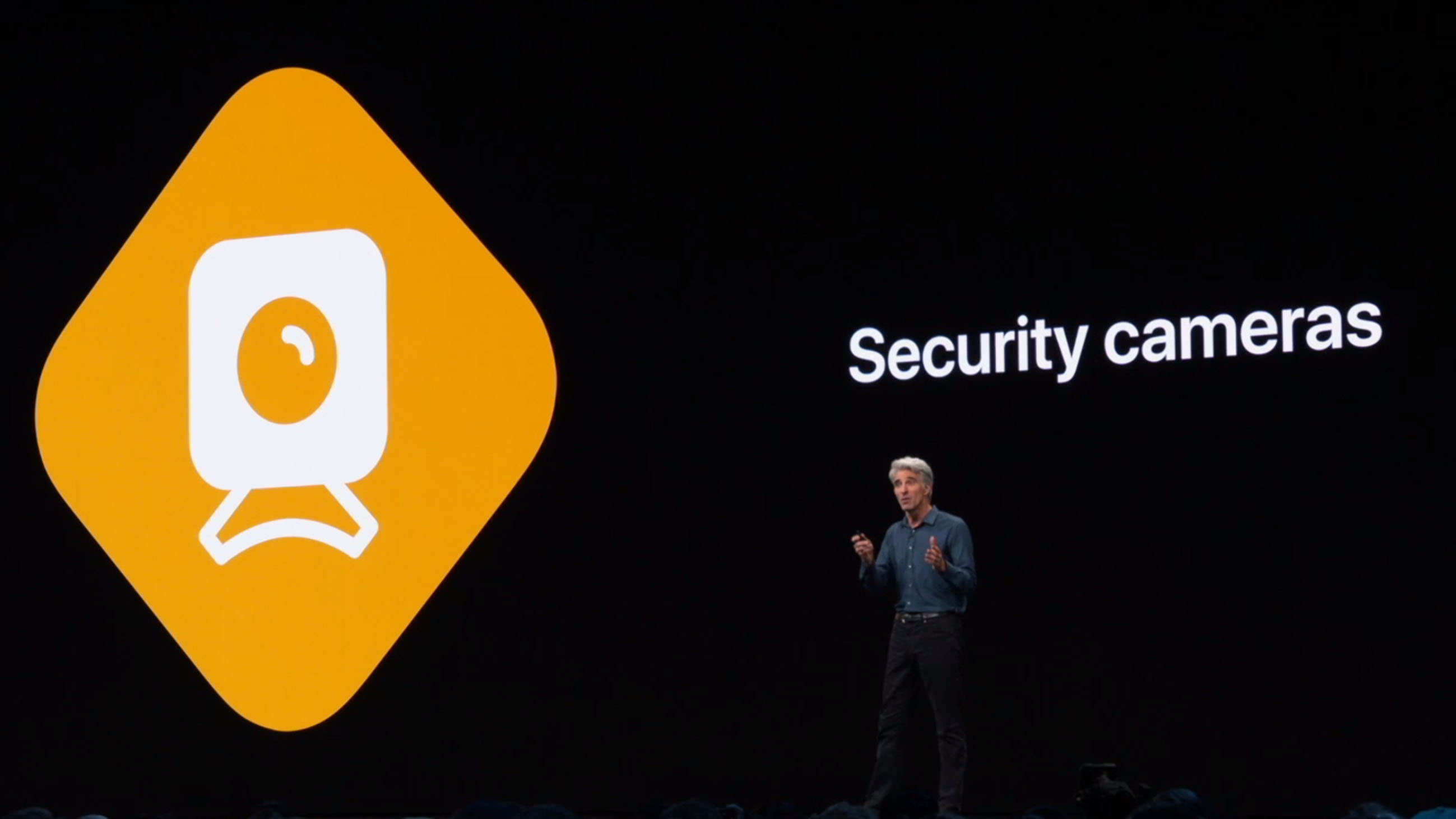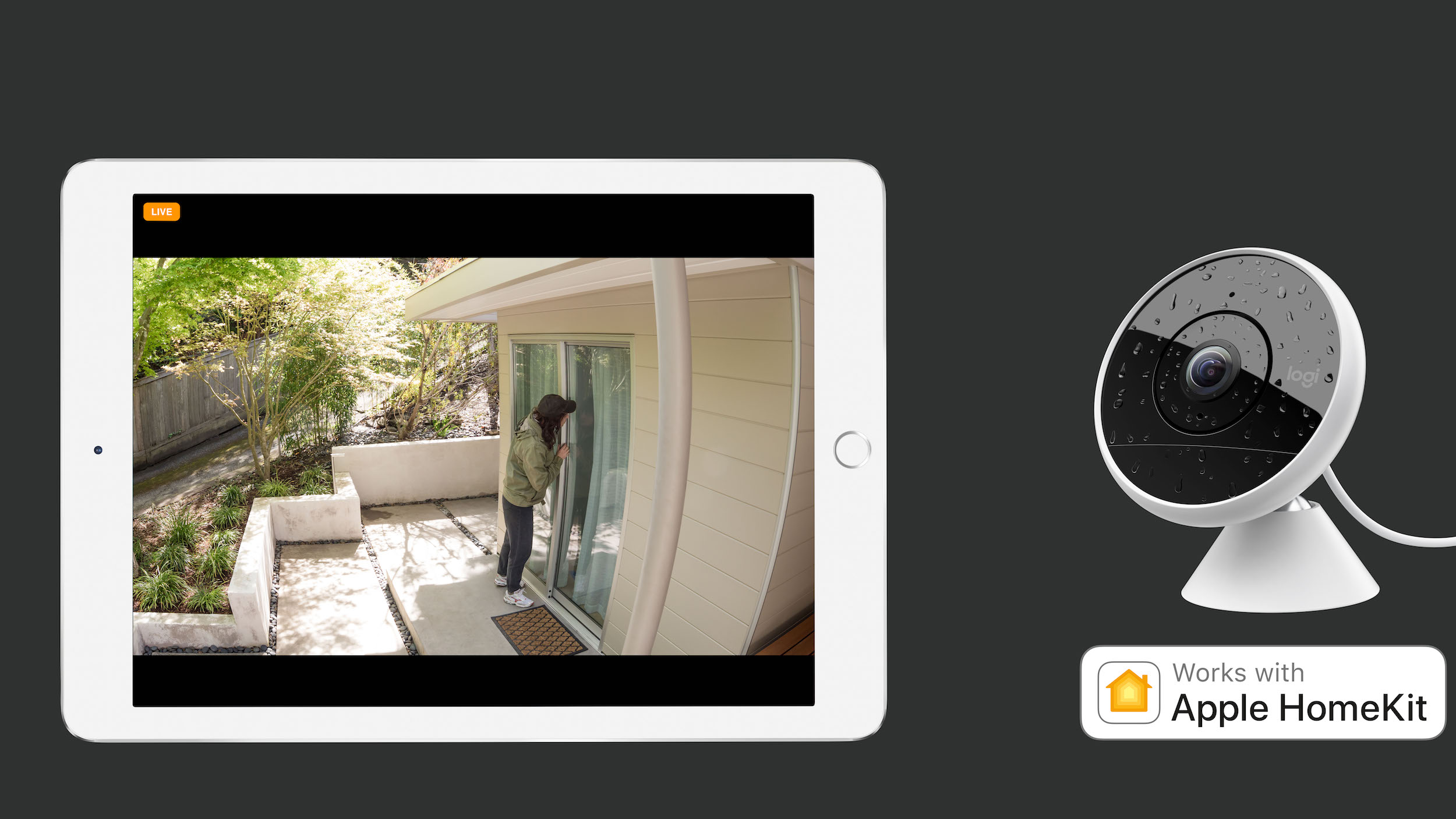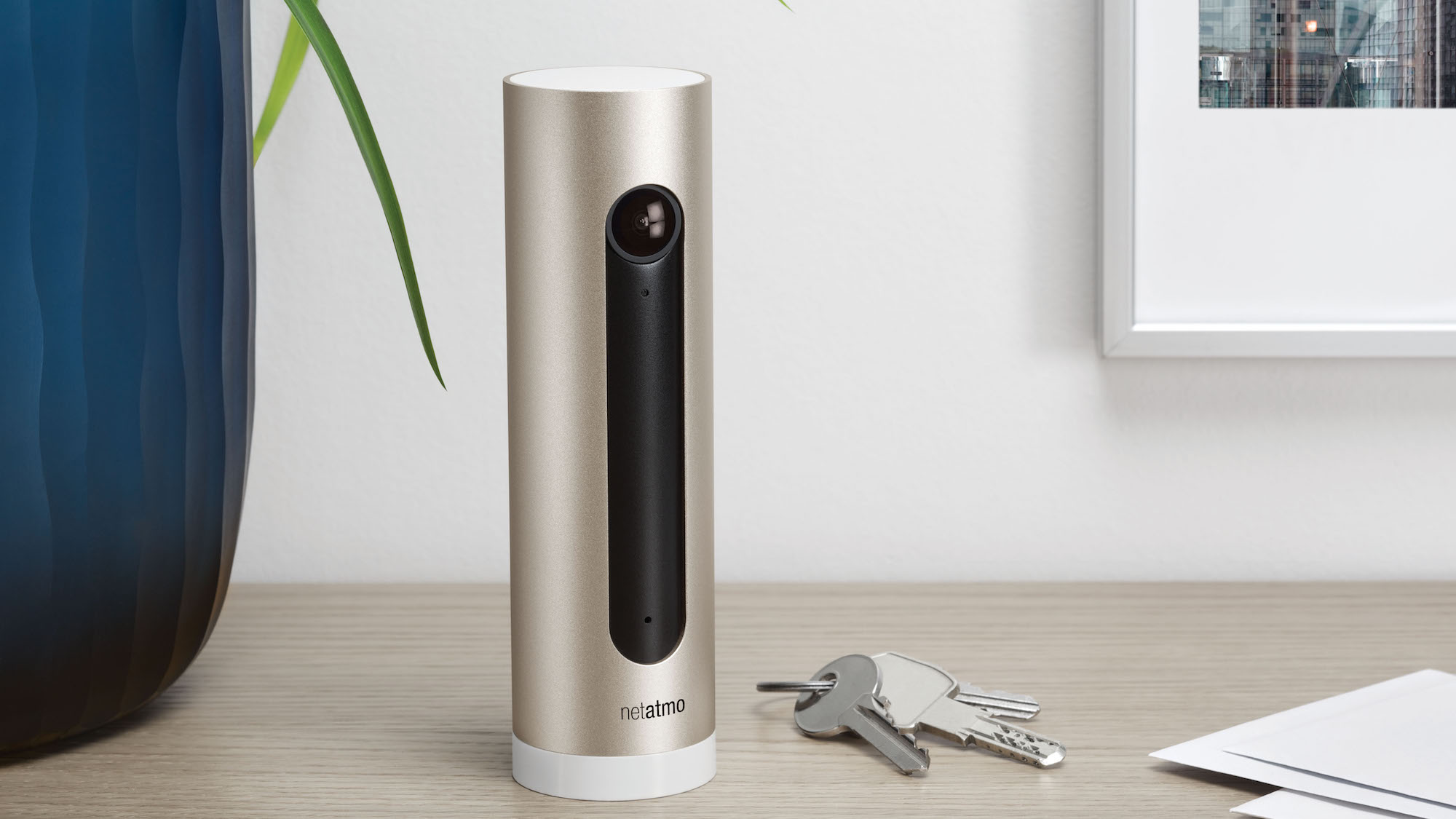HomeKit Secure Video explained: Apple's plan to keep your security cam vids safe
Apple is looking to restore faith in its security credentials

Oh, the irony. Having long boasted that it respects the privacy of its users far more than tech rivals such as Facebook, Google and Amazon, Apple recently was driven to publish a privacy-focussed apology on its web site.
It came following a series of reports that the Siri voice assistant on its HomePod smart speaker was able to record conversations in the homes of some users without their knowledge, and that “a small sample” of those recordings were also passed to external contractors who were able to listen to important personal details.
Apple has now suspended that practice - and, apparently, sacked all the contractors as well - but smart speakers aren’t the only devices that can spy on us in our own homes. Security cameras are among the most popular purchases for the modern smart home, with one analyst’s report putting sales in 2018 at around 54 million cameras, worth more than $7bn, and predicting that figure to double by 2023. And Apple is looking to make sure its track record around HomeKit-compatible cameras is infallible in the wake of its Siri foibles.
Security gadgets a security risk?
Who'd have guessed? It turns out that a security camera can also be something of a security risk, itself.
A security camera doesn’t just record your voice like a smart speaker - it also takes pictures and records video too, potentially revealing everything that goes on inside your home at any time of day or night. Many security cameras will send that video information to the manufacturer’s online servers, which use artificial-intelligence software to analyse the video and detect motion, or to tell a wandering cat from a sneaky cat-burglar.
Having those security cameras connected to the Internet via your home network represents a real risk to your privacy and security - as highlighted by a recent case in which a hacker actually hurled abuse at a family through their security camera.

The HomeKit Secure Video approach
Apple now has an opportunity to restore its reputation on privacy, with the forthcoming release of iOS 13, the latest version of its mobile operating system, which is expected to arrive in mid-September.
Sign up for breaking news, reviews, opinion, top tech deals, and more.
There are a number of new privacy features in iOS 13, including an update to HomeKit, the software that Apple uses to control smart-home devices such as security cameras, lighting, and the HomePod speaker. The most important new feature here is called ‘HomeKit Secure Video’, which, as the name suggests, is designed to provide greater security and privacy for security cameras operating inside your home.
A camera that supports HomeKit Secure Video doesn’t need to upload video to the manufacturer’s servers for analysis, as the video data can be analysed by a ‘local’ Apple device, such as an iPad or HomePod speaker, that you already have within your home. And if the camera does detect an intruder and needs to store video clips online for evidence, then your Apple devices will first encrypt the video and then upload it to your personal iCloud account.
This means that no-one can view the encrypted video recordings without your permission - not even Apple itself, according to VP Craig Federighi, who introduced the new HomeKit features at Apple’s recent Worldwide Developer Conference. Federighi also stated that manufacturers such as Logitech, Netatmo and Eufy will support HomeKit secure video in their cameras, as well as forthcoming ‘video-doorbell’ products.
The introduction of a HomeKit router?
Of course, iOS 13 isn’t due until later in September 2019, so the final details remain unclear, but it seems likely that some existing cameras, such as Logitech’s Circle 2 and the Netatmo Indoor Camera, will be able to support HomeKit Secure Video with a simple software update. However, Arlo told TechRadar this week that it “doesn’t currently plan to support HomeKit secure video”, so that’s something that you should bear in mind before choosing a camera in the future.

Security cameras and smart speakers aren’t the only devices in our homes that rely on an Internet connection either, so Apple is hoping to extend the reach of HomeKit - which, admittedly, doesn’t have a lot of support in the smart-home market at the moment - by releasing a version of the HomeKit software that is designed to work with broadband and wifi routers.
Again, the technical details here are a little vague, but a ‘HomeKit-enabled router’ will be able to surround each smart device in your home with its own personal ‘firewall’ to prevent unauthorized access from people outside your own home. At the moment, only Linksys and Eero have announced plans for HomeKit routers, although Apple has also indicated that it hopes to work with broadband suppliers, such as Spectrum in the US, so that HomeKit security becomes a useful extra feature that these suppliers can offer to their broadband customers.
“Our homes are such personal places, where we deserve to feel safe and secure,” said Federighi at the WWDC announcement. And, given the recent slip-up with Siri and the HomePod, Apple will want to make sure that it gets the new iOS 13 security features absolutely right in order to restore its reputation on privacy.
Cliff Joseph is a former Editor of MacUser magazine, and a freelance technology writer with 30 year’s experience in the industry (and old enough to remember when Apple was close to going bust…).
His first job involved using Macs for magazine sub-editing and typesetting, which led to the realisation that these computer-thingies might actually turn out to be useful after all. After a few years specialising in the Mac side of the market, he went freelance and embraced the wide world of digital technology, including Windows PCs, digital audio and hi-fi, and networking. Somewhere along the line he also developed a bit of a gaming habit and has stubbornly waved the flag for Mac gaming for far too many years.